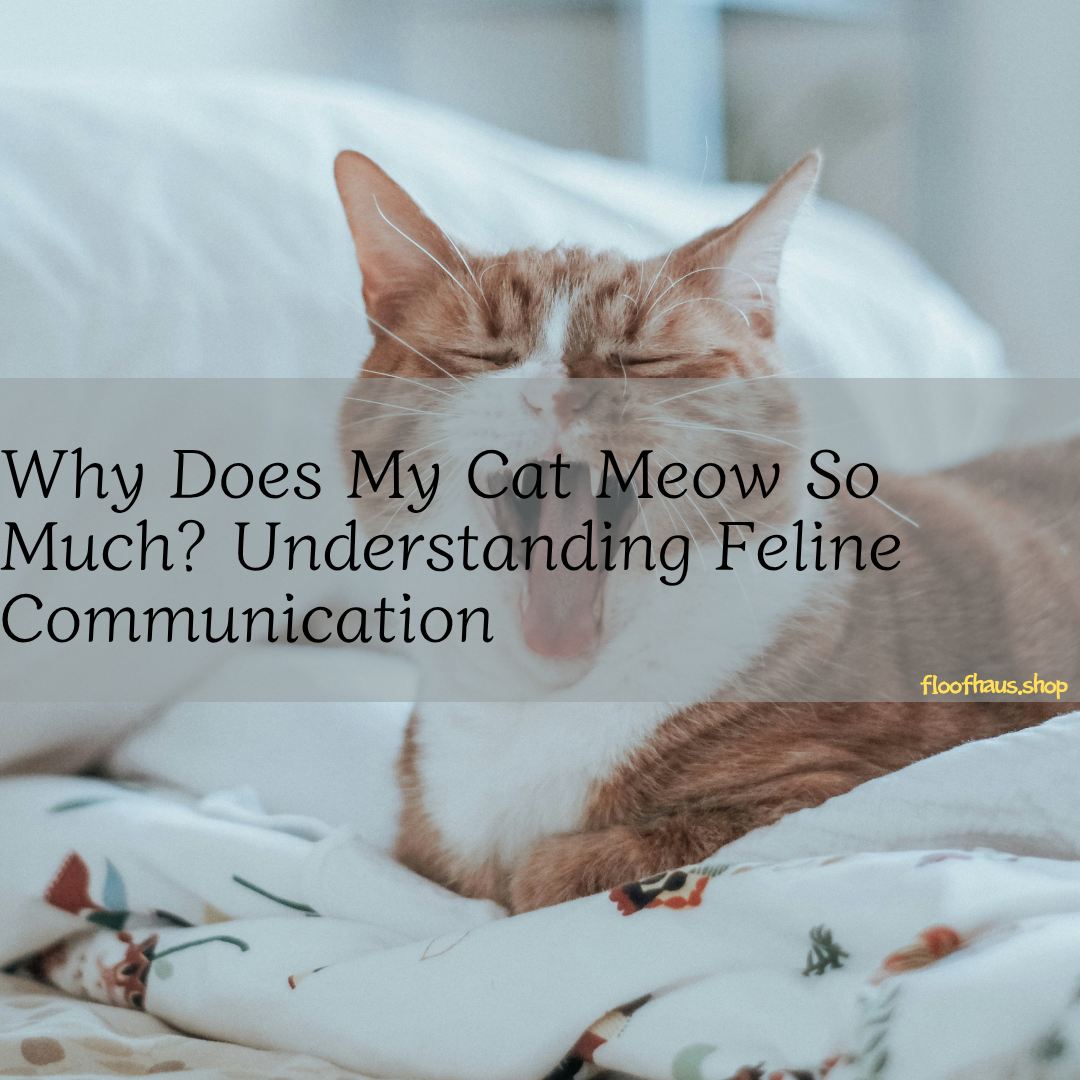
Why Does My Cat Meow So Much? Understanding Feline Communication
Share

Cats and Their Need to Talk
Cats are known for their independence, but they can also be surprisingly vocal. If your cat has started meowing more than usual, it might not just be a quirky behavior—it could be their way of telling you something important. Understanding cat excessive meowing can help you strengthen your bond and meet their needs more effectively.
Understanding the reasons behind cat excessive meowing can help you support your pet and restore a quieter, more peaceful home for both of you.
Common Reasons for Cat Excessive Meowing
There are several reasons your feline friend might be more talkative than usual. The key is tuning in and paying attention to when and how the meowing happens.
1. Hunger and Habit
Many cats quickly learn that meowing gets results—especially when it comes to food. If your cat starts meowing loudly near feeding times, they might be reinforcing a habit that’s hard to break. Maintaining a predictable schedule and avoiding food-based attention can help.
2. Boredom or Loneliness
Indoor cats without stimulation may vocalize out of boredom. If your cat is home alone for long periods, they may meow to seek interaction once you're back. Providing toys, puzzle feeders, and window views can reduce these vocal pleas for attention.
3. Medical Conditions
Sometimes, cat excessive meowing is a sign of pain or illness. Conditions like hyperthyroidism, urinary tract infections, or cognitive decline in older cats can lead to more frequent or louder vocalizations. If your cat is acting differently or their meows sound distressed, consult a veterinarian.
4. Stress or Anxiety
Cats are sensitive to changes in their environment. Moving to a new home, introducing a new pet, or even rearranging furniture can cause stress. Meowing may be your cat’s way of expressing discomfort. Consider pheromone diffusers or calming products to support them.
5. Attention-Seeking Behavior
Cats are smart and observant. If your cat realizes that meowing brings petting, treats, or playtime, they’ll use their voice often. Try rewarding quiet behavior instead, and engage with them only after they’ve calmed down.
6. Heat or Mating Behavior
Unspayed females and unneutered males may vocalize loudly when in heat or seeking a mate. Spaying or neutering your cat typically reduces this behavior and improves their overall health and behavior.
7. Aging and Confusion
Senior cats may suffer from feline cognitive dysfunction, which can cause disorientation and nighttime vocalizing. You might hear loud meowing in the middle of the night, signaling confusion or distress. Gentle nighttime lighting or a consistent bedtime routine can offer comfort.
How to Manage It
Observe Behavior Patterns
Track when and where your cat meows the most. Is it around meal times? At night? When they’re alone? Identifying triggers helps you address the root of the issue.
Create a Stimulating Environment
Prevent boredom with vertical climbing spaces, window perches, rotating toys, or bird feeders outside windows. A mentally and physically stimulated cat is a quieter cat.
Use Calming Products
Consider pheromone diffusers, calming treats, or natural supplements. These can be especially helpful if your cat is adjusting to a change or seems anxious.
Stick to a Routine
Cats thrive on routine. Feed, play, and cuddle at consistent times. Predictability helps your cat feel secure and may reduce meowing for attention.
Don’t Punish, Redirect
Never punish a cat for meowing. Instead, wait for silence and reward that behavior. Responding positively to quiet behavior helps shift their habits.
Visit the Vet
If meowing is sudden, intense, or accompanied by other symptoms (like hiding or reduced appetite), a vet visit is essential. Cat excessive meowing can be an early warning sign of an underlying condition.
When Meowing Becomes a Habit
Sometimes, meowing becomes a learned behavior. If your cat discovers that meowing gets them what they want, they’ll keep doing it. In this case, the best strategy is to reward quiet behavior and ignore unnecessary meowing—unless it’s tied to health or basic needs.
Support From floofhaus
At floofhaus.shop, we offer products designed to help reduce anxiety and boredom in cats. From interactive toys to calming pet beds, our collection can help address some of the root causes of cat excessive meowing. A well-stimulated cat is often a quieter, happier cat.
Final Thoughts
Understanding why your cat is meowing more than usual helps you respond with empathy and care. Whether it’s a simple need or something deeper, tuning into their cues is key to keeping them healthy and content. If in doubt, never hesitate to check with your vet.
